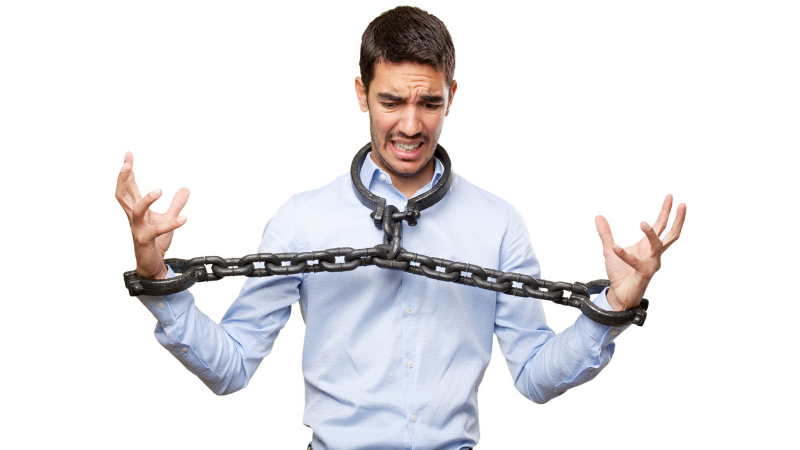A Life Worth Living Is the Reward for Our Work
I’ve shared before about how the purpose of our mental health work is to get to a place of resiliency, but I realized today that I’ve never talked about the other significant benefit we get from doing the hard work to improve our mental states: a life worth living.
We know that, statistically, people who live with mental illness are more likely to fall into addiction. The quality of life and the friends we make while addicted are poor and usually not conducive to remaining sober and healthy.
In fact, the addicts/alcoholics I’ve known in my life have all received one universal piece of advice: don’t hang out with your old friends. You’ll fall back into the lifestyle you’ve worked so hard to change.
We fall prey to addiction because we are fighting to manage our symptoms or to numb the pain we’ve experienced. Sometimes, this pain is self-inflicted; other times, we are the victims. With the increasing proof that illnesses such as depression, anxiety, etc. are genetically pre-disposed, we now understand that many of our childhood experiences and our parental relationships likely were influenced by a parent’s disorder.
We know that we can look at most abusive situations and witness the untreated disorder at the heart of the situation.
As a result, we grow up living out the relationships modeled for us by our unstable parents, further exacerbating the cycle, and causing us to live out those destructive behaviors in our friendships, romantic relationships, and as parents. Breaking the cycle is not easy.
It takes work. A lot of work. Hard work. Frustrating work. Sometimes, it feels like we’re crawling up a muddy hill, the ground pulling and sucking us down, fighting our effort to take that next step forward. And then there’s a landslide, and we find ourselves working to reclaim the ground we already won.
Yeah, it sucks.
But here’s the deal: Doing the work helps us build a better life. A life worth living.
The Process of Creating a Life Worth Living
Most of us, once diagnosed, get connected up with a therapist or other structured program to help us learn new skills. For those who are healthy, these may seem natural and obvious; for us, however, it takes intentionality, changing behaviors and thoughts, and – often – overcoming deep-seated fears and hurts.
Relationships
We learn new ways of interacting with other people. We learn how to set boundaries. These changes cause challenges in our existing relationships; both people have to adjust to this new normal. If we’ve always been aggressive and controlling, the other person isn’t sure that they can trust the changes they are seeing in us. The relationship may never fully heal from the damage we’ve caused.
If we’ve been dealing with someone who is a boundary-crosser, they rebel and push against the limits we set and the respect we now insist on receiving. It’s stressful and uncomfortable for all involved. The relationship may not survive this change, and the loss can be a difficult pill to swallow.
For me, the changes in my relationships were uncomfortable. I was accustomed to drama and lashing out. As I learned to interact in better, healthier manners, I felt the lack of drama. It bothered me. I felt the hole it left behind. Changing my sense of normal took time.
But the relationships I’ve built since have more than filled that hole. I don’t have all the same friends as I once did. Some of my closest relationships are now more distant. I have new friends now, friends who I can safely trust and who can trust me. I’ve learned to let go more and rely on my friends. It’s pretty awesome, and worth all the stress and work it took to get me here.
Creating Joy
Another skill I’ve had to learn is to create joy in my life. The idea of creating joy felt counter-intuitive to me; when I hear “joy,” I think of an emotion, not an experience. Yet, my therapist and healthcare network encouraged me to be intentional about creating and experiencing joy in my daily life. It’s been a critical part of building a life worth living for me.
This advice is not specific to me and my situation, either. Over and over again, I heard this advice shared with others in my mental health classes. I heard others share the revelation that they didn’t need to start something new to experience joy; they started seeing it in the activities they already did, and in the relationships they already had.
For some, creating joy meant gardening. For others, it was coffee talk with a friend. I like to knit and spin; those activities bring me joy, even when I’m frustrated with a project.
What I’ve found, and heard others echo, is that the act of creating joy centers around building space in our lives. Maybe it’s not a lot of space. Perhaps, it’s five minutes a day. Regardless, we are making time for ourselves to enjoy an experience, a key to a life worth living.
Nutrition, Exercise, and Fundamental Self-Care
At some point in our journey, we are encouraged by the professionals around us to take a look at how we treat our physical bodies. This isn’t about losing weight; instead, we are thinking of the respect we grant our physical selves.
Starting with a water challenge, for example, is simple, and most of us don’t expect to lose weight from it. But success with drinking water often leads to an interest in eating healthier. Each time we improve our nutrition, we are changing our internal chemistry, which influences our brain’s responses. For me, I discovered that reducing my sugar intake had a considerable impact on how I felt, my energy levels, and my ability to handle stress. Pretty neat, right?
It’s similar with exercise: we change our body’s internal makeup, and our brains react positively to these changes. It also acts as a stress reliever, granting us another way to handle work and relational pressures more gracefully.
Additionally, we look at our personal care routines. I implemented a more thorough skincare regimen; others make a commitment to fold their laundry, so they are less rumpled when they head out to take on the day.
Sound familiar? This is the advice given to everyone, regardless of their mental health status: take care of yourself. Be intentional about it. Make the time. The difference is that this advice and encouragement has a more profound effect on those living with a mental illness: us.
Mental Care
We are also encouraged to care for our emotional state in new ways. Journaling, talk therapy, meditation, and time with God and our Bibles are all ways we develop and care for our mental health. Coincidentally, research finds that these practices correlate to healthier relationships and happier people.
Boring Self-Care
“Boring self-care” is one of my favorite hashtags on Instagram. It’s simple points, like opening the mail and paying the bills. It’s facing the mountain of laundry and committing to washing and drying a single load. In current slang, this is adulting.
It can also include changing employers or our career path altogether. If we face outsized stress in our career lives, a change here can make all the other elements easier to implement and maintain.
Conversely, doing those other things can make us better employees, reducing our stress levels at work. I know I struggle to write when I know I have laundry waiting for me and the kitchen needs to be swept. Even though I write my best early in the morning, if those things aren’t handled, I can hardly write at all.
Building a Life Worth Living Is Intentional
The one characteristic that all these points have in common is that they are intentional. We learn, and we put these elements in place because we want to feel better and we know that each of these contributes powerfully to our mental health.
What we miss sometimes, is that at each step we are putting in place the elements of building a life worth living.
In many ways, these choices, decisions, and actions give us a leg up on those without a mental illness diagnosis. While they wish to have many of these elements, we get forced into it and earn the reward of our efforts. Some days are harder than others to maintain the new life we’ve built for ourselves, but it’s worth it all the way.
Keep working your way up that hill. It’s beautiful up here.
What have you found on your mental health journey? What are you focused on changing right now?
Looking for daily inspiration and community? Join our warm and supportive Facebook group!









